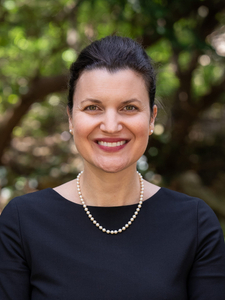Transcript
I really like this wording here of "come alongside," because I think even putting it that way gives us an image that we can build from. An anxious child will be comforted often by our mere physical presence. Anxieties are quieted when we know we are not alone. We can be a little more courageous when we're not alone, so our presence matters. But as Christians, we also are meant to be the very presence of Christ to one another. So I want to be that for my child, which makes me ask, "Who is Jesus to us when we are anxious?" That's going to help me as a parent get a vision for how I want to be with my child. And what comes to mind first for me is Jesus' gentleness. He's going to be gentle. One, because they're anxious, so they're already feeling vulnerable. But two, because a child by nature is vulnerable.
So our gentleness to our children and their anxieties is going to be paramount. A gentle tone of voice, gentle words that invite their thoughts and make space for their emotions. And a last way to come alongside is to help your child learn and to practice what it means to live by faith. This is a conversation I'm having over and over right now with one of my children who's afraid of the dark. It's wanting her to know that even though you can't see God, he can see you. You can't see him. That's hard. But people of faith believe in what they can't see. He says he's with you. Lord, help us to believe that. He says he won't leave you. Lord, help us trust that. And as we're teaching these truths, we are also praying for our children that God would give them the gift of faith, that he'd increase their trust, that their anxieties would be an occasion where they learn how to rely upon him, to look to him and find refuge and comfort when they're afraid.


